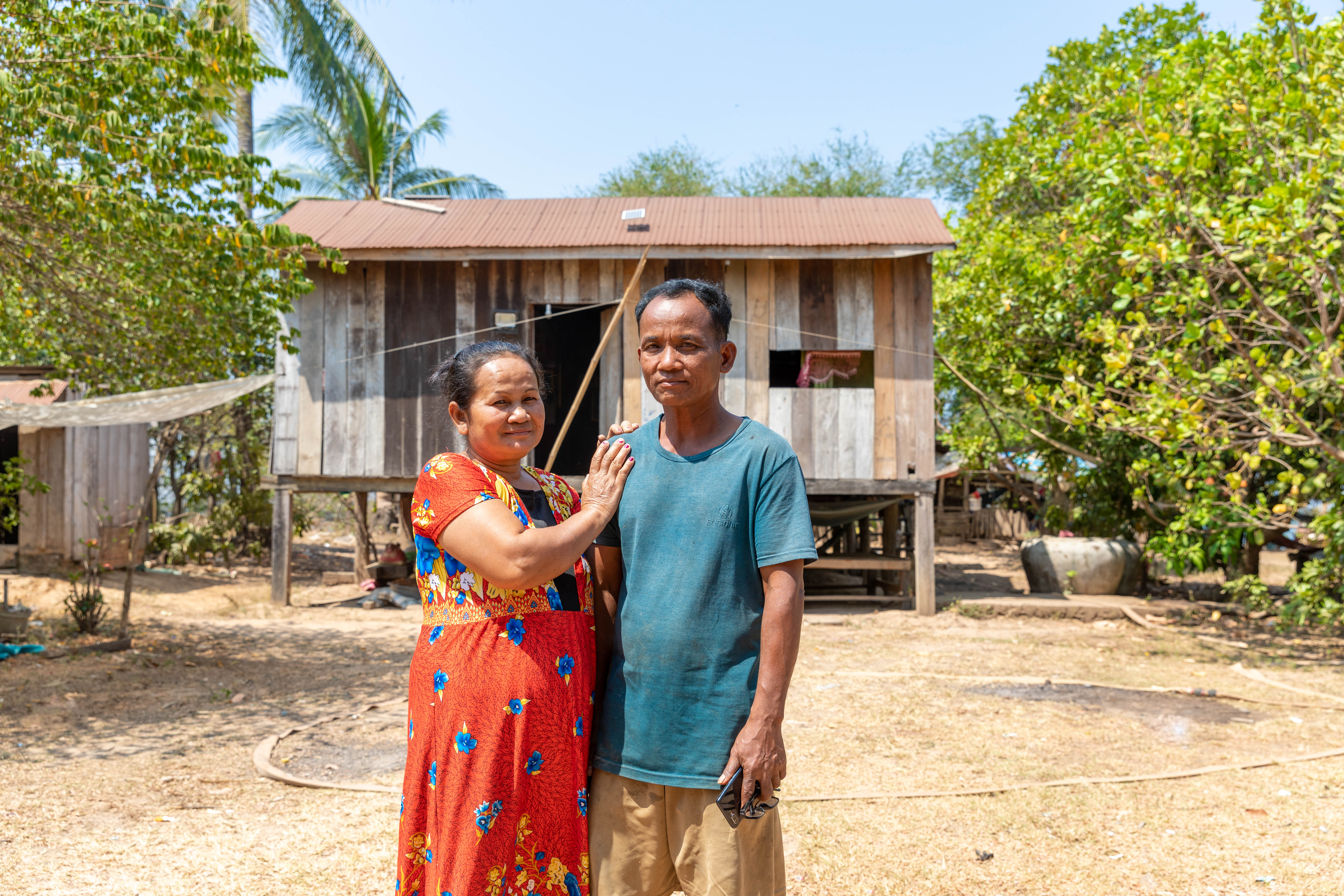
By Sornnimul Khut
Mrs Savoeu lives with her husband and grandson in Phdao Community of Sambour district, Kratie province. She owns a small animal husbandry business with two dozen pigs and some chickens. The animals require a significant amount of water.
“We need so much water to raise them well, especially during the dry season when it is very hot, for washing, cleaning and drinking. Otherwise, they will easily get sick and die,” she said.
Every morning, she and her husband take turns going down the slippery and dangerous riverbank to ignite a water pump that runs to her house.
“It is very costly,” says Mrs Savoeu.
To pump water up from the steep Mekong River on a monthly basis, she uses around 60 liters of gasoline, which costs her USD75. She could have just switched on the house electrical pump if it were connected to sufficient electricity, which would save her time, money, energy and make her job safer.
“We sell the grownup pigs and spend the money on animal feed to feed others and pay for gasoline. Our business is running at a loss. I could have saved money if the house were connected to sufficient electricity”, she explains.
Mr. Chhit Lorn, a Kampong Cham Commune Chief, echoed Mrs. Savoeu’s complaint and said that people in his commune face similar issues. He further lamented that without sufficient power, there could be no big development in his community.
“For instance, we need computers at school for students to study, and at the health centre and commune office to better operate and provide services. Without sufficient power, we cannot anticipate any growth or changes to the community,” he said.
4,000 villagers from four villages in Kampong Cham commune on the Mekong River depend entirely on irregular energy generated from rooftop solar panels and car batteries.
Over the last decade, Australia has supported Cambodia to provide sustainable, quality electricity infrastructure services across the country. Almost 99% of rural villages are currently connected to the main electricity grid.
Now Australia is a contributing partner with the Ministry of Mines and Energy, Electricity Authority of Cambodia, Electricity of Cambodia to connect the last 1% of rural villages to reliable electricity from renewable energy sources.
The CAPRED infrastructure team and national and local authorities visited Sambour district to discuss establishing a solar farm to provide mini off-grid electricity. The team spoke to local authorities and the villagers about the project and potential locations of the solar farm.
The solar farm would provide Sambour district with an affordable, reliable and plentiful supply of electricity. Women like Hang Savoeu could easily and safely pump water into their homes at any time.
“Once connected to sufficient electricity, I would buy an electric cooker to use at home to save more time, an electric water pump to save cost on gasoline and add more light bulbs at home especially in the toilet, and fans for family members and guests,” said Mrs. Savoeu.
Phdao Community is a potential eco-tourism spot in the district. Once the whole community is connected to more stable and sufficient electricity, it is expected that more visitors will come. This will help boost the district's economy by creating more jobs and improving the livelihoods of people in the community.

